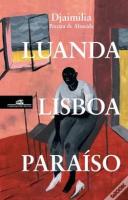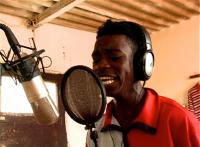Lisboa
Articles tagged with Lisboa
Tag Archive
- (Re)Imagining African Independence
- ...
- Abotcha
- african culture
- African lands
- Amílcar Cabral
- An Outpost of Progress
- Ângela Ferreira
- angolan music
- anti-semitism
- archive de documentation
- As Cidades e as Trocas
- atafona
- bairro
- beer
- Bibliotera
- biography
- Boaventura Sousa Santos
- Carlos Paca
- Carlota de Barros
- Carnaval
- ciberespaço
- Colorism
- communality
- contemporary dance
- cultural minority
- cultural studies
- cultures
- David Livingstone
- end of the world
- ery claver
- Filipa César
- Gegé Mbakudi
- gulbenkian
- hair
- Haiti
- havana
- hospitality archaeologies
- Hugo Vieira da Silva
- Imperial Garden
- Ingrid Mwangi
- intellectuals
- Ireland
- jungle
- justiça
- Leão Lopes
- Learning to live with the enemy
- LGBTQI
- Liberation struggles
- língua portuguesa
- Lisbon
- luanda
- lusophone
- lusotropicalism
- Mahla Filmes
- mamela nyamza
- mc k
- Mella Center Lisboa
- Michel Figueiredo
- microeconomics
- monica de miranda
- morality police
- nairobi
- não dança?
- Negro. mulheres
- Nito Alves
- north-south division
- O que temos a ver com isto? O papel político das organizações culturais
- olive
- Pancho Guedes
- Parangolé
- Pedro José-Marcellino
- photography
- police violence
- portland
- Postmemory
- programação cultural
- raça
- Saara
- safari
- Sara Chaves
- Sarah Maldoror
- satire
- semba
- sequence
- sexual harassment
- silence
- social rights
- sorcery
- space
- Tambla Almeida
- Teatro Praga
- Tervuren
- travel
- Turia El Glaoui
- URSS
- valter hugo mae
- Viveiros de Castro
- youth
- Zululuzu
 What Djaimilia Pereira de Almeida writes can be understood as a powerful transformation tool regarding the Portuguese human landscape. With it, the painful fragments of a history made up of frustrations and disappointments, of ruptures and withdrawals and of ambiguous felling are not erased, instead they are reunited in a healing coexistence.
What Djaimilia Pereira de Almeida writes can be understood as a powerful transformation tool regarding the Portuguese human landscape. With it, the painful fragments of a history made up of frustrations and disappointments, of ruptures and withdrawals and of ambiguous felling are not erased, instead they are reunited in a healing coexistence.  This article explores the role of Kuduro, the popular Angolan electronic music and dance style in the process of updating the national Angolan identity called angolanidade to the conditions of the new millennium.
This article explores the role of Kuduro, the popular Angolan electronic music and dance style in the process of updating the national Angolan identity called angolanidade to the conditions of the new millennium. 